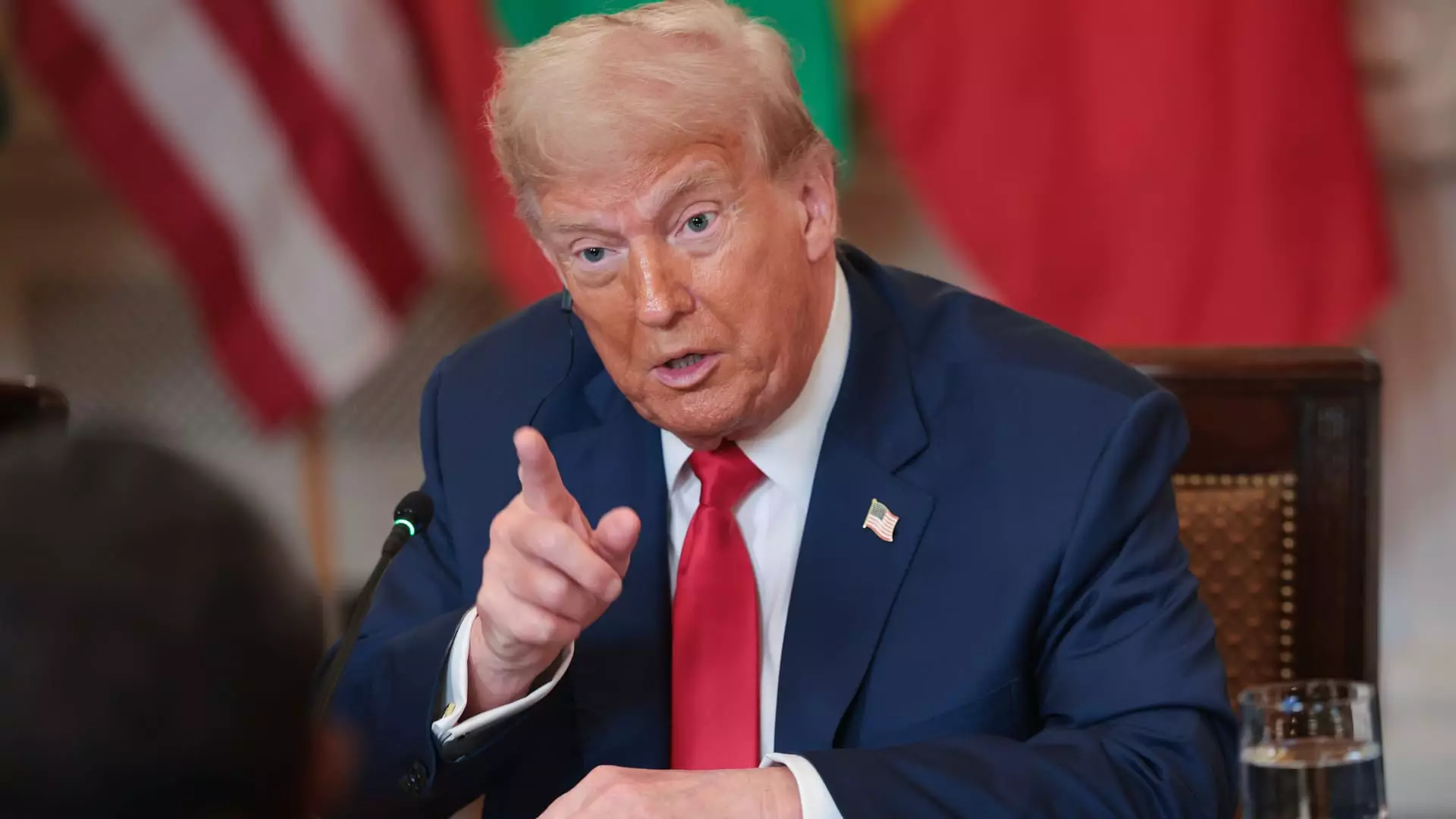The recent announcement by former President Donald Trump to impose a staggering 50% tariff on Brazilian imports signals a dangerous shift toward economic aggression cloaked in political retaliation. Rather than pursuing nuanced diplomacy, Trump’s decision seems rooted in personal grievances and internal political battles, particularly his condemnation of Brazil’s handling of Jair Bolsonaro’s legal troubles. This move not only jeopardizes the fragile fabric of international cooperation but also threatens to escalate into a trade war that can destabilize global markets. The punitive tariff, justified by Trump as a response to alleged “unfair trade practices,” reveals a troubling tendency to weaponize economic policy for political retribution rather than for fostering genuine fairness or mutual growth.
The Illusion of a ‘Trade Deficit’ Crisis
Trump’s framing of Brazil’s trade relationship as a dangerous threat to U.S. security reveals a fundamental misunderstanding—or perhaps misrepresentation—of modern trade dynamics. Despite his claims of “unsustainable trade deficits,” the U.S. actually boasted a goods trade surplus with Brazil totaling over $7 billion last year. This discrepancy underscores how partisan narratives distort economic realities to justify protectionist measures. Such rhetoric ignores the complexities of global supply chains and the mutual benefits of fair trade, instead emphasizing thinly veiled economic nationalism. If anything, these tariffs risk creating a self-fulfilling prophecy, where U.S. consumers and industries suffer when retaliatory measures from Brazil and other countries are enacted in response.
Political Motivations Cloaked in Economic Garb
Trump’s tariffs appear less as pragmatic trade policies and more as expressions of his personal disdain for Brazil’s judicial and political processes. His comments about Bolsonaro’s trial as a “witch hunt” and criticisms of Brazil’s stance on free speech indicate a troubling trend: using economic sanctions to influence internal political affairs abroad. When tariffs are weaponized for political vendettas, the very notion of fair and reciprocal trade becomes compromised. Instead of fostering mutual respect and cooperation, such moves erode trust and open the door to a global environment where countries are penalized for practicing legitimate legal and political processes.
The Short-Sightedness of Heavy-Handed Economic Punishments
Imposing a 50% tariff—a significant jump from the previous 10%—is reminiscent of economic brinkmanship that historically leads to widespread instability. While Trump asserts this is a step toward “rectifying injustices,” the reality is that such measures are often detrimental to all involved parties. Consumers face higher prices, American corporations may lose access to crucial markets, and diplomatic relations deteriorate. The global economy is interconnected, and tariffs of this magnitude threaten to ignite retaliations that can spread beyond Brazil, impacting other allies and trading partners. The timing of this move, amid ongoing investigations and political turmoil abroad, signals a preference for confrontation over constructive dialogue, which only deepens existing fissures.
Undermining the Principles of Free and Fair Trade
Trump’s narrative about “attacks on digital trade” and alleged “unfair trade practices” serve as a smokescreen for protectionist objectives disguised as defending American interests. His threat to retaliate if other nations raise tariffs on American goods exemplifies a shortsighted, zero-sum worldview that undermines global economic stability. True economic leadership requires cooperation, transparency, and adherence to mutually agreed standards—not unilateral punitive tariffs that sow chaos. This approach fundamentally contradicts the principles of free markets and fair competition, by substituting diplomacy with economic coercion.
The Dangers of Weaponizing Economic Policy for Personal and Political Agendas
Trump’s use of tariffs as a lever to influence foreign governments and internal political issues is emblematic of a broader threat to international norms. When trade policies become tools of punishment rather than cooperation, it diminishes the global community’s ability to address common challenges. This conduct risks setting a dangerous precedent where leaders, motivated by personal grievances or ideological battles, undermine existing frameworks of international trade and diplomacy. Such a trajectory could lead to a fragmentation of the global economic system, with countries retreating into protectionism and nationalism—an outcome that benefits no one and threatens long-term peace and prosperity.
Trump’s tariff escalation against Brazil exemplifies the perilous direction in which economic policy can be manipulated for personal and political motives. Far from promoting fairness or economic growth, these measures threaten to deepen global divisions, undermine international cooperation, and destabilize markets. The path forward demands a reevaluation of such aggressive tactics and a renewed commitment to multilateralism, fairness, and diplomacy.


Leave a Reply